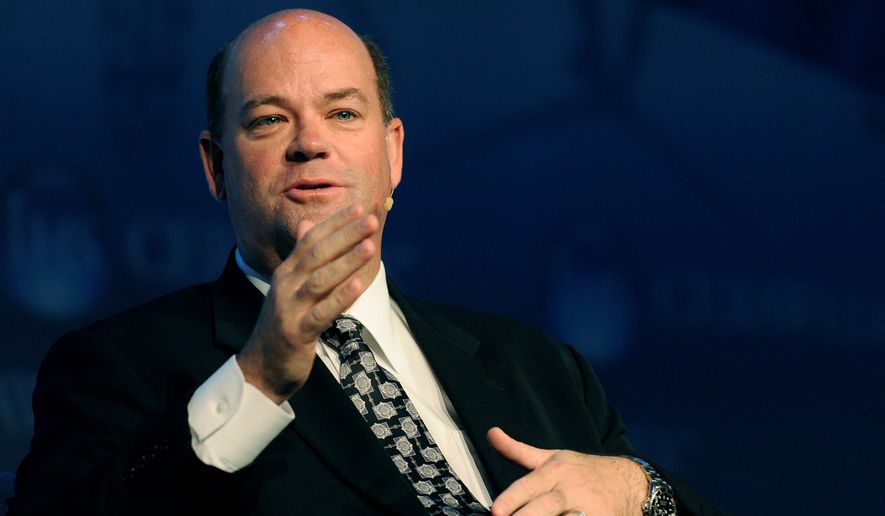An emerging glut in U.S. oil markets is one more reason the U.S. government should lift long-standing bans of exporting oil to foreign customers, the head of one of the country’s biggest energy giants said Tuesday.
Ryan Lance, the chairman and CEO of ConocoPhillips, told a U.S. Chamber of Commerce luncheon on Tuesday that the U.S. is in the midst of an energy renaissance, but that to keep the oil boom hitting on all cylinders, the country will need to start exporting surplus barrels of crude.
Rising domestic production has already borne economic fruits for many Americans, he noted. The U.S. oil and natural gas industry now supports 9.8 million domestic jobs and has contributed more than 8 percent of the U.S. gross domestic product. In addition, those who work in the oil industry have a mean wage that is twice that of the private-sector average.
All of this is happening even as oil prices have plummeted more than 45 percent over the past six months, leading to rigs being taken offline and layoffs in the industry as revenues have slumped.
The burgeoning U.S. energy renaissance, Mr. Lance warned, could get strangled by regulations prohibiting oil companies from exporting excess crude to willing foreign buyers.
“We need to export our surplus oil. We need exports particularly in low price environments,” he said.
The export ban was first instituted in the wake of the 1970s Arab oil embargo, as a buffer against severe domestic price and supply swings. But the oil industry and many private energy economists say the market has changed so dramatically in the past decade that the ban no longer makes sense.
“To be sure, I’m not anti-regulation,” Mr. Lance said. “I just think regulations need to be fair and balanced. And they need to be based on facts and science, not hype and hysteria.”
Ironically, the U.S. is the world’s third-largest exporter by volume of oil products. But the crude oil from which they are made cannot be exported. The Brookings Institution projects that oil production will rise by nearly 3 billion barrels per day. But if production continues to skyrocket, Mr. Lance said, the country will have no place to put all of that oil.
“The ban is out of date,” he said.
Some private analysts agree.
“The fact of the matter is we are running out of storage capacity in the U.S.,” Ed Morse, head of commodities research at Citibank, said at a recent symposium at the Council on Foreign Relations in New York.
Mr. Lance said Tuesday that the U.S. political system may not be ready to lift the export ban this year, but the window for quick action may be closing in Washington.
“We’ve got to gain some traction this year. Certainly as we go into an election year, it becomes harder,” he said.
• This article is based in part on wire service reports.




Please read our comment policy before commenting.